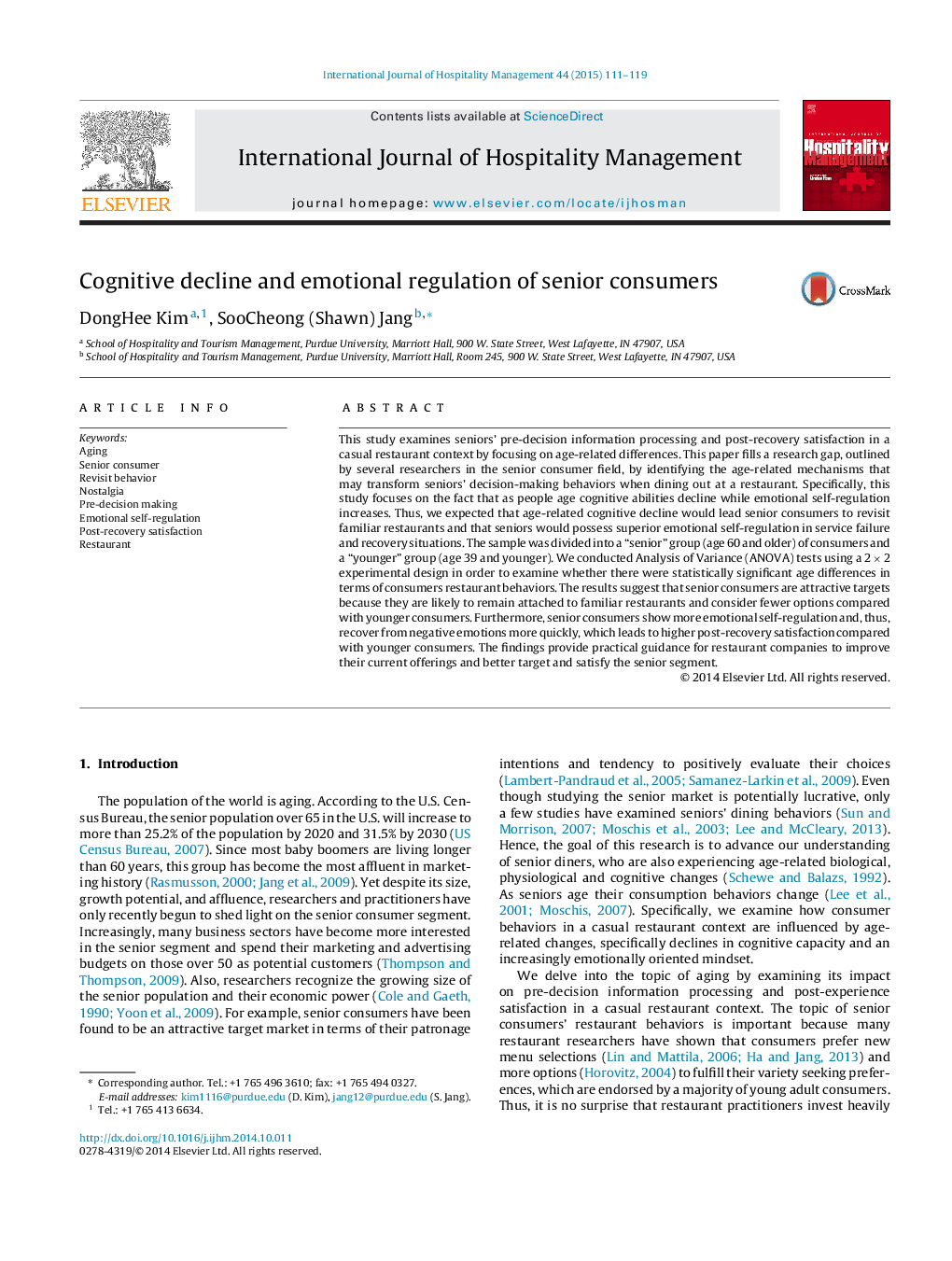| Article ID | Journal | Published Year | Pages | File Type |
|---|---|---|---|---|
| 1009425 | International Journal of Hospitality Management | 2015 | 9 Pages |
This study examines seniors’ pre-decision information processing and post-recovery satisfaction in a casual restaurant context by focusing on age-related differences. This paper fills a research gap, outlined by several researchers in the senior consumer field, by identifying the age-related mechanisms that may transform seniors’ decision-making behaviors when dining out at a restaurant. Specifically, this study focuses on the fact that as people age cognitive abilities decline while emotional self-regulation increases. Thus, we expected that age-related cognitive decline would lead senior consumers to revisit familiar restaurants and that seniors would possess superior emotional self-regulation in service failure and recovery situations. The sample was divided into a “senior” group (age 60 and older) of consumers and a “younger” group (age 39 and younger). We conducted Analysis of Variance (ANOVA) tests using a 2 × 2 experimental design in order to examine whether there were statistically significant age differences in terms of consumers restaurant behaviors. The results suggest that senior consumers are attractive targets because they are likely to remain attached to familiar restaurants and consider fewer options compared with younger consumers. Furthermore, senior consumers show more emotional self-regulation and, thus, recover from negative emotions more quickly, which leads to higher post-recovery satisfaction compared with younger consumers. The findings provide practical guidance for restaurant companies to improve their current offerings and better target and satisfy the senior segment.
